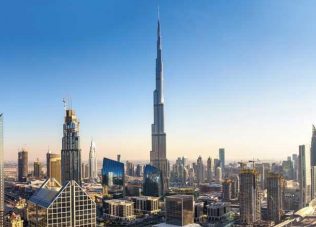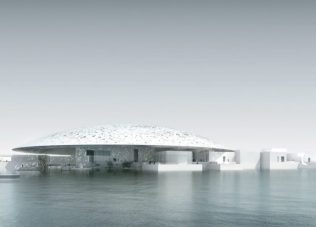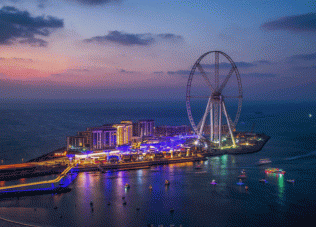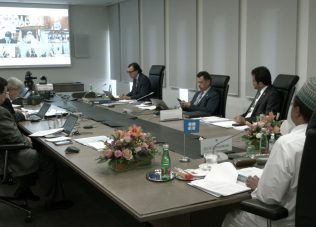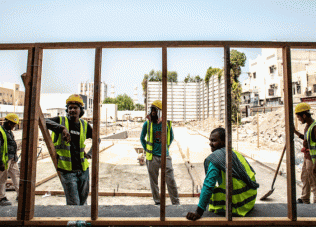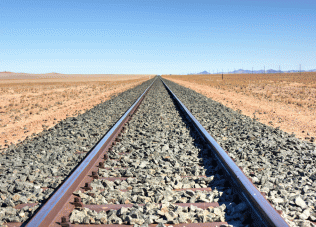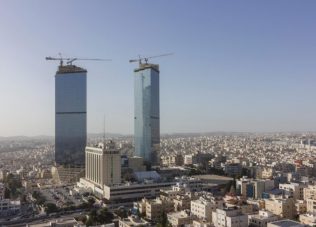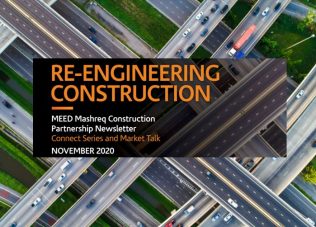New ways of working for UAE construction

The UAE construction sector must reassess the way it delivers projects in order to play a more active role in the nation’s journey to net zero by 2050
Construction stakeholders in the UAE and around the world are facing growing pressure to keep their carbon footprint in check. Globally, the buildings and construction sector is estimated to account for up to 40 per cent of annual carbon emissions, and the industry is increasingly recognising that it must act now to reduce its environmental impact.
While the task at hand is monumental, industry experts gathered at the Construction Business Leaders Club organised by MEED-Mashreq note that opportunities for change are more viable than they seem.
From adopting paperless strategies and incorporating cleaner building materials, through to tapping into the hydrogen economy – the construction industry could potentially readapt many of its conventional practices in the near-term.
The need to reconsider deep-set practices is essential in the face of the challenge.
“Carbon neutrality is no longer the goal but just a starting point, a way to offset our actions,” says an engineering consultant, part of the panel discussion at the Net Zero in Construction event on 9 June. “We now need to actively think about net-zero, which is top of the agenda for regional and global governments.”
The projects industry needs to start defining specific changes, says the consultant. It also needs to take charge for its actions, going above and beyond client briefs when it comes to managing carbon footprint.
Effective partnerships
Experts at the club regard public-private partnership (PPP) projects as an effective route to drive green outcomes.
“Where in the past PPP in markets such as the UK carried a stigma and were seen as a way to generate profits for the private sector, it is now regarded as a way for funders to expand their green portfolio,” says the engineering consultant.
He expects to see lenders and investors prioritise investments into projects with greater green outcomes. As PPP projects grow in number, they could steer the cause for environmentally conscious infrastructure.
“We see almost a triple push now – from the government, lenders and service providers – to deliver green projects,” says the consultant.
Hydrogen
Hydrogen is quickly becoming a priority for governments in the region as part of their efforts to transition to net zero. The creation of a hydrogen economy would have a positive knock-on effect on the construction industry.
In the UAE alone, more than $10bn of green hydrogen and green ammonia projects have been identified by MEED Projects, constituting 11 per cent of the value of all hydrogen projects identified in the Middle East and North Africa.
But beyond serving as a new market opportunity for contractors, hydrogen also provides an alternative to conventional fuels used in the industry.
“A hydrogen economy affects not just energy – it’s been around for a long-time, especially with industrial processes and has always been created locally as a by-product,” says an attendee at the club.
And while hydrogen-fuelled power generation is yet to match the level of maturity of conventional thermal solutions, experts say that progress is just round the corner.
“We’re scaling up our expertise in terms of distribution and storage quite rapidly,” says the engineering consultant.
For example, pilot hydrogen combustion generators are being trialed in Europe to power construction sites, while the use of innovative technologies such as drones and AI are reducing project development time thereby cutting overall emissions.
Building materials
Cement and steel are two of the most widely used materials in construction, and are both notorious for their carbon footprint. The production of steel and cement accounts for 7-10 per cent of global carbon emissions each. Emissions from steel manufacturing, however, are nearly double the quantity of steel produced – for every tonne of steel produced, 1.85 tonnes of carbon dioxide is emitted, creating an unsustainable system.
As cities expand to support urban population growth, demand for these materials is only set to rise. It has become crucial to find alternatives to both the production processes and the materials themselves.
Recent years have seen efforts to bring sustainable building materials to the market. But adoption in the region has been limited, due to a lack of expertise, cost, and in many cases a hesitancy towards change.
“As an industry, we need to recognise and take responsibility for embodied carbon every time we create a structure,” says the engineering consultant. “These structures need to be future-proofed. We also need to help authorities come to terms with how we can approve structures made of green cement or steel. It’s not the regulator’s responsibility alone – we have to push for it, and this will require not just courage but also huge amounts of investment.”
Modularisation is an area that has seen steady demand in recent years, as source providers move closer to deployment sites, reducing transport time and cost.
“The Middle East’s construction sector is also almost on par with global standards when it comes to design – which now means that change can actually take place, as long as there is a will,” says a management consultant at the club.
Efforts are also underway when it comes to research and development, and pilot projects.
At COP26, the UAE committed itself to the Industrial Deep Decarbonisation Initiative (IDDI), working with nations including India, Canada and Germany, as well as relevant organisations, to tackle carbon intensive construction materials.
Similarly, Heriot-Watt University Dubai’s Centre of Excellence in Smart Construction is leading research efforts locally to derive ways to decarbonise cement. With support from the UAE Ministry of Climate Change & Environment, it is working with industry players to find practical solutions for the production of cement with far less carbon footprint.
“Ultimately the investors, particularly from the private sector, are getting far fussier about what they invest in,” says the consultant. “This will drive the design team to come up with far more environmentally sustainable solutions. The solutions are out there. They just require investment.”
This article is a part of a series of reports from the MEED-Mashreq Business Leaders Club: Construction edition held in Dubai on 9 June 2022. Attendees at the closed-door event were speaking on condition of anonymity.

